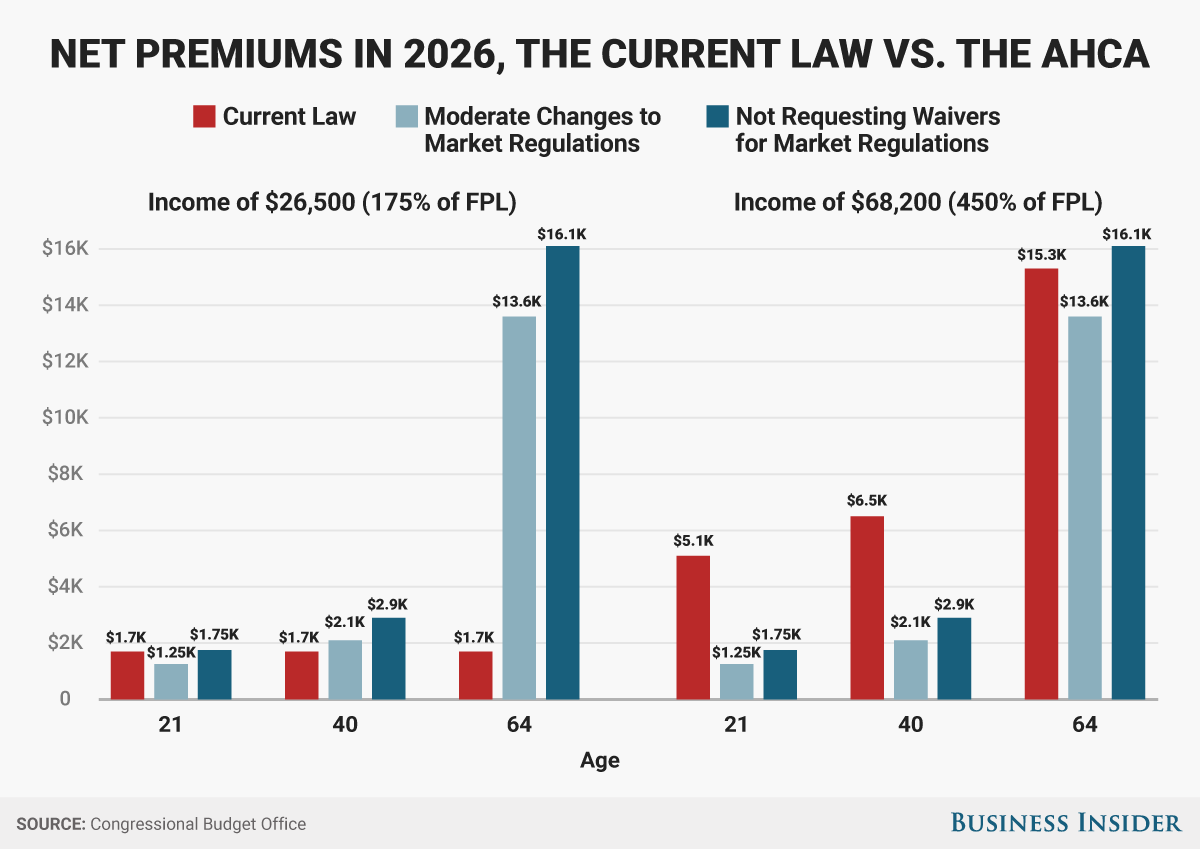The Congressional Budget Office on Wednesday released its long-awaited updated report on the GOP’s healthcare bill.
In addition to estimating that 23 million fewer people would have insurance in 2026 than the current baseline and that the bill would decrease the deficit by $119 billion, the report looked at the American Health Care Act’s potential effects on health insurance premiums for those in the individual market.
The report projected the net premiums for different income levels under the current Affordable Care Act and the proposed AHCA in 2026.
While the report found that, in general, premiums would decrease, it found that would mostly be due to the sky-high cost that would be faced by older and poorer people.
Instead of providing tax credits based on income and cost of living in an area — like the ACA does — the AHCA would give flat credits to people based on age, ranging from $2,000 for those under 30 to $4,900 for people aged 60 to 64.
According to the CBO, those flat credits mean that older people just shy of Medicare age would see premiums skyrocket.
For 64 year olds making $26,500, the average premium would increase from $1,700 a year to $16,100 under the base AHCA scenario. That would mean roughly 61% of the person’s income would go to premiums, compared with just over 6% under the ACA.
There would be a slight adjustment for people in states that request waivers from two of Obamacare’s biggest protections. That would occur, the CBO said, because states could rescind the essential health benefits provision, meaning insurance companies could offer skimpier coverage plans.
The biggest beneficiaries of the shift would be young people making close to $70,000 a year, who would see their premiums drop from $5,100 a year to just $1,750 under the baseline AHCA — and $1,250 if their state requests a waiver.
 Diana Yukari/Business Insider
Diana Yukari/Business Insider
NOW WATCH: Yale history professor: Trump’s path to tyranny is unfolding













